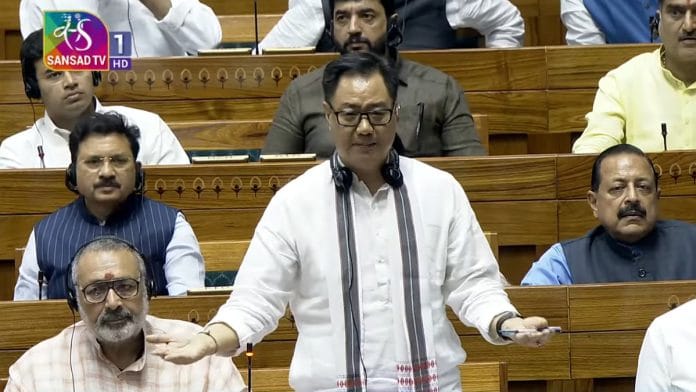As I pen this article, the Government of India is set to table the Waqf (Amendment) Bill 2024, addressing a long-standing demand for reform in the Waqf Act 1995. Over the years, a number of Muslim organisations—including the Zakat Foundation of India—have called for reform. Indian civil officer Syed Zafar Mahmood, the foundation’s founder, who has worked with the Sachar Committee, raised his voice over the much-needed reform. Numerous dargah heads have also expressed support for the proposed Bill. Apart from reform, the issue of corruption within the waqf boards has also been a significant concern that demands urgent attention. Many accusations concerning the mishandling and theft of waqf properties have surfaced over the years, frequently resulting in significant monetary losses and a decline in public confidence.
Waqf Board is reportedly the third-largest landholder in India and aims to work toward the socio-economic development and benefit of the Muslim community. It then becomes pertinent to ask whose interest it is serving. Why is the Indian Muslim community, despite being the beneficiaries of so many welfare schemes introduced by the State, still faring worse than the Schedule Castes (SCs) socio-economically? Not only does corruption in waqf boards necessitate reform but the question of inclusivity also needs to be addressed. There is no data available to determine how many Pasmanda Muslims hold powerful positions in waqf boards or if women are represented at all.
What the Bill promises
The proposed Bill addresses the issue of inclusivity and corruption by suggesting structural reform. It guarantees representation to Shia, Sunni, Bohra, Agakhani, and other backward classes among Muslims and calls for the creation of a distinct board of Auqaf for Bohras and Aga Khanis. It also mandates that the waqf board have two female members on its panel to serve as a catalyst for reforms inside the organisation. The proposed Bill also ensures that the establishment of “waqf-alal-aulad” does not result in the denial of inheritance rights of heirs of the waqif, including women heirs.
This Bill truly recognises that Indian Muslims aren’t a homogenous group — I have been arguing this for long. In socio-political discourse in India, the word ‘minority’ is considered equivalent to Muslim, and ‘Muslim’ as a synonym of Sunni male Muslim, which, unfortunately, leaves no space for other significant voices within the community. Acknowledging and creating space for all Muslims is a must to see positive change on the ground.
The other significant amendment, which is a reason for much debate among Muslim elites, was the 2013 ruling that granted waqf boards the power to designate property as ‘Waqf Property’. There have been many cases of misuse of such power and disputes between waqf and the government; any property cannot simply be deemed to be waqf land. Such a dispute is resolved by the collector, not the waqf tribunal, to ensure fairness. The key change here is that the Indian State will have more say in the regulation of waqf boards and even allow non-Muslim CEOs to be appointed by the government.
These regulations can bring much-needed reform so that waqf boards can serve the purpose they were set up for instead of serving the interest of elites. When the power of the Waqf Act is misused to unfairly claim property, it deepens existing fault lines. The burden of this misuse is often borne by poor Muslims, who have little influence and derive minimal benefit from waqf boards. Additionally, it perpetuates injustice against those whose lands are unjustly seized, further eroding trust in the system.
Also read: SC alimony order gives Muslim women agency to file for divorce. Ask how many will dare to do it
Absurd claims
Cases of waqf board claims keep surfacing. A shivalay in Lucknow was recognised as a waqf property. The claims were made notwithstanding the shivalay‘s documentation in state records dating back to 1862 and the creation of the Shia Central Waqf Board in 1908. A waqf board even tried to claim the Taj Mahal: In 2018, the Sunni Waqf Board said before the Supreme Court that although the monument is the property of the Almighty, it has to be officially recognised as the board’s property for practical reasons. This group argued that the monument belonged to them even in the absence of signed official documents of descendants of Shah Jahan. The claim was contested by the Archaeological Survey of India (ASI), which argued that giving ownership to the waqf board would create other problems and spur similar claims for the Red Fort and Fatehpur Sikri. Waqf also claimed an entire village in Tamil Nadu, including a 1,500-year-old Hindu temple. In Haryana, land that belonged to a gurdwara was transferred to the waqf.
These are examples of some of the absurd stories about waqf claims. There is a need to set up a fair system to solve conflicts. No other community has such vast land for worship in India without any government regulation. In fact, temples are controlled and regulated by the government. The proposed Bill will set up an important system of checks and balances.
It can be beneficial in curbing corruption, ensuring inclusivity, and resolving long-standing conflicts, ultimately benefiting everyone, including marginalised Muslims. It is the first step in a much-needed reform.
Amana Begam Ansari is a columnist and TV news panelist. She runs a weekly YouTube show called ‘India This Week by Amana and Khalid’. She tweets @Amana_Ansari. Views are personal.
(Edited by Humra Laeeq)






